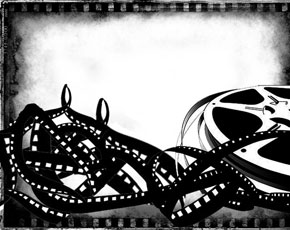
Fed up with a lenient justice system hundreds of young women, men and elders took to the streets to highlight to the government and elected public representatives the urgent need for a rehaul of the system to address the most recent and widely publicised gruesome rape of a twenty-three year old girl in the national’s capital. People questioned this abject lack of apathy that rampantly prevails in the system but were at the receiving end of police action in the form of water canons, tear gas shells and lathi (baton) charge. Millions saw them live on television. One thing was common to both those who were present there and watching the live coverage - it all looked far too surreal, and even filmic, to be true and yet, it was as real as the day. Looking at the images of police beating protestors for questioning a publically elected government brings to mind images from N. Chandra’s Pratighaat (1987). When a schoolteacher, Laxmi (Sujata Mehta), choses to defy the local politician by testifying against him, he publically disrobes her and no one comes forward to save her. The film reinterprets the mythical tale of Durga, the goddess, who slays the demon Mahishasura, with the politician playing the demon that is a personification of evil and now, many young Indians could have the same view. Irrespective of the interpretation, cinema and even Bollywood, isn’t insulated enough to be untouched by reality. In Rang De Basanti the perfunctory ease with which a corrupt politician tarnishes a dead Air Force pilot for incompetence in order to save himself transforms young students in an instant. It’s not like they jump from being carefree youngsters to neo-revolutionaries who assassinate the corrupt minister; they protest by asking questions, they take out candle-light marches to evoke some sentiment in the state machinery and only resort to violence when all efforts fails. For its part cinema inspired reality when Rang De Basanti’s candle light march became a nonviolent tool of dissonance adopted by Indians in real life. It was a candle light walk that prompted people to come out in droves and urge the court to reopen the Jessica Lal murder case.
A lot of skeptics might not agree but in a nation like India, cinema plays a pivotal role in shaping the manner in which people think. Although it might be statistically and intellectually arguable but there is great truth in the fact that the depiction of police and society at large while engaging with rape victims in Bollywood films is highly responsible for influencing people’s behavior in real life. Coming down a notch from an obvious criminal act of rape, even romance sometimes presented to be a man’s playing field. You wouldn’t think of a character played by an Aamir Khan or a Govinda as someone who’d molest a girl but look closer and tell me that films such as Deewana Mujhsa Nahin (1990) or Hero No. 1 (1997) aren’t insidious enough to inspire men to view women in an uncomplimentary light? A docile fashion photographer Ajay (Aamir Khan) mistakes Anita’s (Madhuri Dixit) sweetness for love. He expresses his feelings but she shuns him away and yet, he refuses to give up. He is convinced that no one can love Anita like him and so, simply starts hounding her and doesn’t let her engagement to another stop him. You see, Ajay is certain that her perspective partner isn’t a good man and when in the end his prediction comes true Anita starts seeing Ajay in a new light. Similarly on the pretext of being helpful to a fellow Indian in Switzerland, Hero No 1’s Rajesh (Govinda) endlessly pesters Meena (Karishma Kapoor), and what’s worse her own aunt encourages him. Inspiration to do good from films is far outweighed by the instances that instigate the wrong. Popular Indian cinema and not just Bollywood fuels the already prevailing patriarchal outlook towards women in India far more than anyone would credit it with. In many Tamil films, and Hindi films like Benaam Baadshah, there have been instances when a rapist agreeing to marry their victims suddenly absolves them of all inhumanity and wrong.
Films are often blamed for stimulating the wrong in people. Experiences like John Hinckley attempting to assassinate President Regan after obsessively watching Martin Scorsese’s Taxi Driver (1976) are a reminder of the power that cinema wields over people. The majority of the people who took to the streets during the Delhi Protests form a segment that are usually avoided or misrepresented by Bollywood. For what it’s worth this group got inspired by the good from films rather than the second half of Rang De Basanti or A Wednesday (2008) but the way things are, who knows how reality might outshine those reel images too. Its audiences have done Bollywood some justice and now it’s up to the filmmakers to not only correctly represent a major proportion of them but also inspire them in the true sense of the word.
Poll:
[polldaddy poll=6791724]

The views expressed by this blogger and in the following reader comments do not necessarily reflect the views and policies of the Dawn Media Group.













































